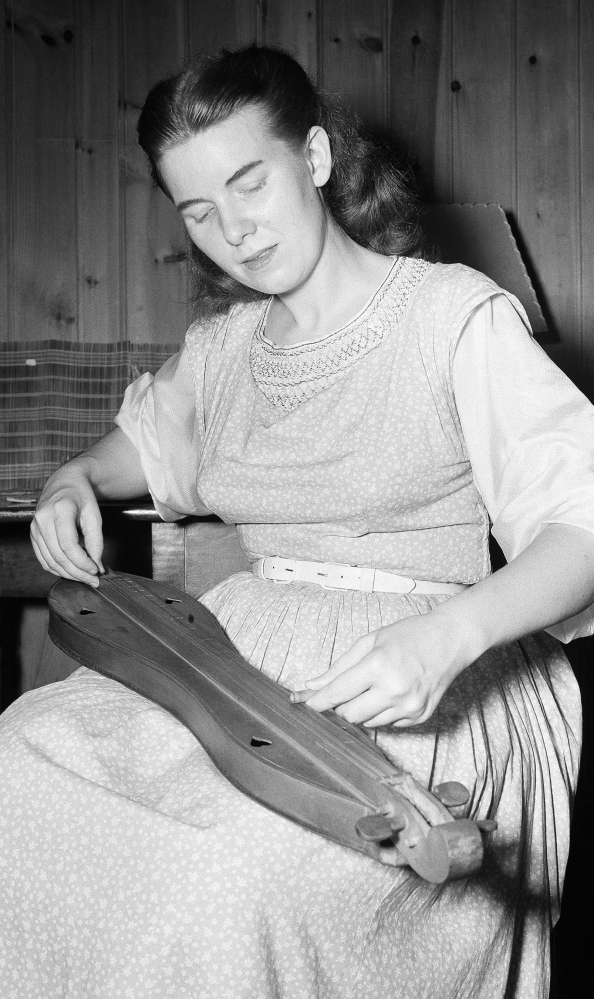When Jean Ritchie was growing up in rural Kentucky, warm evenings had a character all their own.
After a day’s work in the cornfield, the kids – Jean was the youngest of 14 – would gather on the family porch. Her mom, Abigail, would sway back and forth in the swing, and her dad, Balis, would start playing his mountain dulcimer, and, after a while, the whole family would sing. As the evening deepened, they and their neighbors would, as they said, sing the moon up.
Jean Ritchie kept on singing. She sang songs about courting and kings – ballads from the 1700s, when her forebears came from Scotland and Ireland. She sang well-loved lullabies and nearly forgotten children’s rhymes. She sang her own protest songs about coal miners dying of black lung disease and mining companies lopping off mountaintops.
The girl from Viper, a hamlet in a hollow with just 15 or 20 houses, became one of Appalachia’s most compelling voices and a powerful influence in folk music, releasing more than 30 albums and performing globally.
Ritchie, credited with saving songs that would have otherwise died and turning the once-obscure dulcimer into a folk music staple, died Monday at her home in Berea, Ky. She was 92.
“No one was more important to the survival, appreciation and revival of traditional Appalachian folk music in the 20th and 21st centuries,” said the American Folklore Center of the Library of Congress.
Dean Osborne, director of the Kentucky School of Bluegrass and Traditional Music, likened Ritchie’s influence on Appalachian music to that of Bill Haley and Chuck Berry on rock ‘n’ roll.
“And once you heard her voice, you’d never forget it. It was pure and clear, a high-lonesome sound totally unadulterated and haunting,” said Osborne.
“I was asked to attend some parties and bring my dulcimer,” she told The Associated Press in 2008. “That’s how my so-called career got started.”
A graduate of the University of Kentucky, Ritchie tried teaching in her home state before moving to New York for a job in the Lower East Side’s Henry Street Settlement.
Using her music to calm unruly children, she also shared the stage with Pete Seeger and Bob Dylan at Greenwich Village coffeehouses.
Copy the Story LinkSend questions/comments to the editors.



Success. Please wait for the page to reload. If the page does not reload within 5 seconds, please refresh the page.
Enter your email and password to access comments.
Hi, to comment on stories you must . This profile is in addition to your subscription and website login.
Already have a commenting profile? .
Invalid username/password.
Please check your email to confirm and complete your registration.
Only subscribers are eligible to post comments. Please subscribe or login first for digital access. Here’s why.
Use the form below to reset your password. When you've submitted your account email, we will send an email with a reset code.